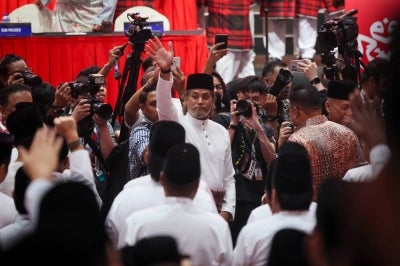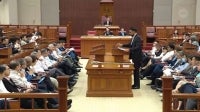Why age shouldn't be a barrier in PLKN 3.0?
ASMALIZA MANSOR
SHAH ALAM - Toxicity, in the realm of literature, typically refers to poisons and pollutants like smoke and chemical waste.
However, in the context of human interactions and life, it extends to individuals who exude negativity and have a detrimental impact on others.
A toxic person can inflict emotional harm, hinder cognitive development, and undermine our self-esteem, identity, and self-confidence.
Google searches yield a plethora of information on identifying toxic individuals.
Toxic traits often manifest when an individual consistently makes sarcastic comments, treats everything as a competition, turns every issue into a joke, corrects others incessantly, and revels in others' struggles.
This group is known for highlighting their opponents' weaknesses, craving the spotlight, mocking others, lying to strengthen their arguments, and harboring strong feelings of jealousy and envy.
These negative characteristics are pervasive, and their toxicity extends into the workplace, affecting both personal and professional lives.
The negative impact of toxicity isn't confined to our social circles; it extends to our families and is exacerbated by the amplifying effect of social media.
On the subject of social media, it often serves as a breeding ground for toxicity, with users frequently subjected to a barrage of negative emotions and viral attacks over seemingly insignificant issues.
However, amid the toxicity of certain social media users, one writer found entertainment in the netizens' reactions to the revival of the National Service Training Programme 3.0 (PLKN 3.0).
PLKN 3.0, originally introduced in December 2003 and subsequently abolished on August 13, 2018, caused a significant uproar when plans for its revival were announced.
It's worth noting that the decision to abolish PLKN and the State Affairs Bureau (BTN) was made due to their misuse of ideological indoctrination and the substantial annual cost of RM700 million.
Netizens had varied opinions on PLKN 3.0, and humorous and relatable images created using artificial intelligence (AI) technology quickly went viral.
This creative outlet served as a departure from toxic behaviors and offered a refreshing detoxification for many.
Following the initial chaos, the Defence Ministry clarified that only teenagers born in 2007 would be called for PLKN 3.0 when it is implemented, with the maximum age limit for trainees set at 35.
The writer's personal opinion was that there would be no fundamental issue with including older individuals in PLKN 3.0.
It could provide parents with some much-needed respite from their daily routines.
The writer was confident that discipline would not be a problem, as those with families and careers are accustomed to early wake-up calls.
Mixing with a younger crowd could also allow them to share their life experiences and rejuvenate their motivation.
These older participants should not be underestimated, as they may possess greater stamina and determination.
Financial and family commitments may be a concern, but the writer believed the government would address these issues.
The ultimate practicality of PLKN 3.0 remains to be seen after its implementation.
Joining the programme may help individuals rid themselves of toxic behaviors, leading to a healthier, more harmonious life, both mentally and physically.
Download Sinar Daily application.Click Here!














